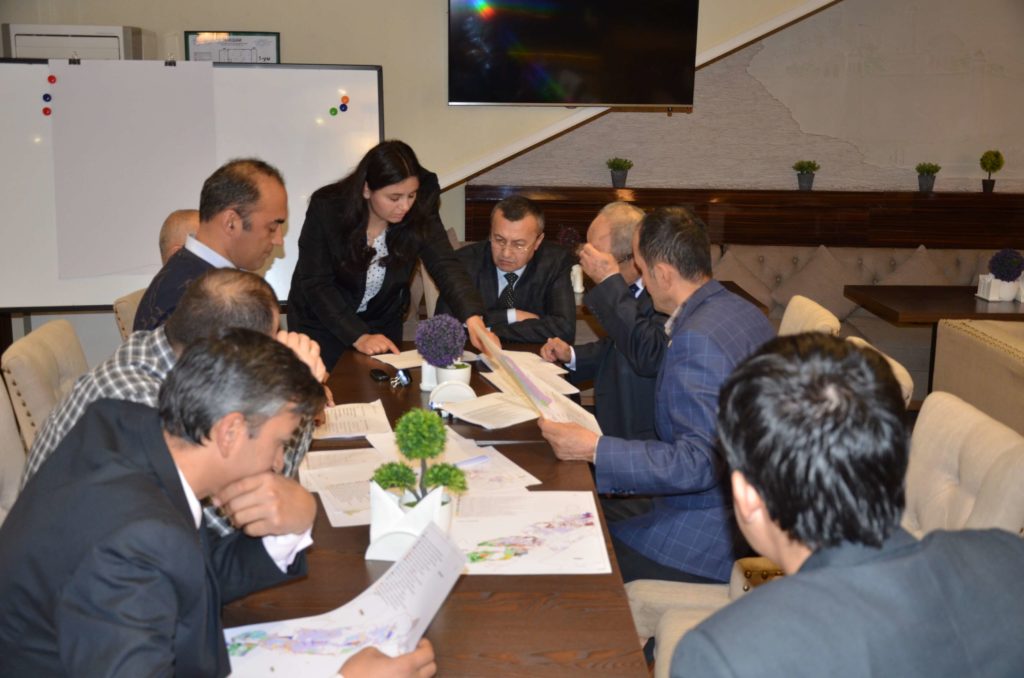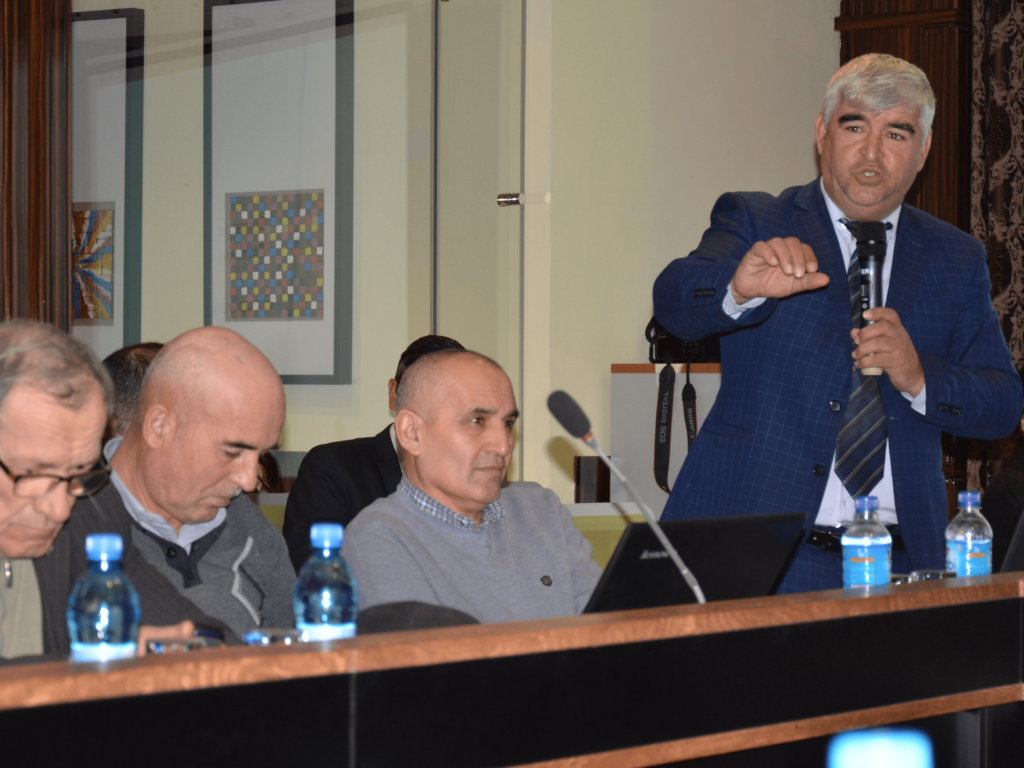Joint Forestry Management is a technique that accounts for the interests of all stakeholders and includes them in the management process. A conference “Strengthening JFM* in Tajikistan: achievements, problems, and decisions” was held to share experiences and data collection fromthe JFM approach in Tajikistan as well as discuss possibilities of expanding JFM within the country. The conference brought together about 60 participants from national partners*, national and international organizations* working in the field of forestry and JFM.
The event offered the opportunity to identify, understand, and discuss successes, as well as issues that hinder the further development of JFM approach in the State forest fund lands at national level. For example, it was identified by the Forestry Agency* that JFM activities need to be included in the whole Forestry reporting system. The need for developing clear instructions to implement JFM at state forest enterprises was also raised.
At the end of the conference, it was decided that the Forestry Agency would organize collection of relevant information from all forest enterprises and other institutions implementing JFM, with the goal of building a comprehensive database on JFM agreements all over Tajikistan. It was also agreed to develop a JFM reporting system whose form should be approved by the Forestry Agency, and develop instructions on implementing JFM regulation following consensus from all stakeholders.
Mr. Nabizoda Naim, deputy director of Forestry Agency, expressed gratitude to GIZ and CAFT projects* for their weighty contribution to the cause of developing the forestry sector in Tajikistan and highlighted the importance of the JFM workshop. He advised his forestry staff: “JFM is the potential easiest and cheapest way of forest management, so please follow up recommendations coming out from the workshop.”
The workshop was organised by SLU-CA programme jointly with CAFT and Forestry Agency.
*Abbreviations/Explanation:
JFM – Joint Forest Management is partnerships involving both the local forest enterprises and local communities to rehabilitate forests. Its central idea is a long-term lease of degraded forest land to the local population. JFM is implemented in Tajikistan since 2006.
National partners – Forestry Agency (Management department, Forest Inspection, Forest Research Institute), Forest Enterprises, Forest User Groups.National and international organizations – GIZ, CAFT*, ACTED*, AKF*, PO* ATO, PO Azal, PO Bargi sabz, PO Jangalparvar, PF CAMP Tabiat, Caritas, CESVI, FFI, WHH, EU commission, KfW, UNDP, TIKA, the Korean embassy.
Forestry Agency – Forestry Agency under the Government of the Republic of Tajikistan.
CAFT project – KfW financed project “Climate adaptation through sustainable forestry in important river catchment areas in Tajikistan”.
KfW – (Kreditanstalt für Wiederaufbau – ”Credit Institute for Reconstruction”) a German state-owned development bankprovides financing to governments, public enterprises and commercial banks engaged in microfinance and SME promotion in developing countries.It was formed in 1948 after World War II as part of the Marshall Plan. As of 2018, it is Germany’s third largest bank by balance sheet.
ACTED – Agency for Technical Cooperation and Development is a French humanitarian NGO established in 1993. It is a non-governmental, non-political and non-profit organization committed to supporting vulnerable populations around the world.
AKF – Aga Khan Foundationis a private, not-for-profit international development agency, which was founded in 1967 by Prince Shah Al Hussaini, Aga Khan IV.AKF seeks to provide long-term solutions to problems of poverty, hunger, illiteracy and ill health in the poorest parts of South and Central Asia, Eastern and Western Africa, and the Middle East.
PO – Public Organization.
PF CAMP Tabiat – Public Foundation located in Khorog, Tajikistan. Its goal is to promote sustainable development in rural mountain areas of Tajikistan.Caritas – Caritas Internationalis, a confederation of 165 Catholic relief, development and social service organisations operating in over 200 countries and territories worldwide. Its claimed mission is to work to build a better world, especially for the poor and oppressed.
CESVI – one of the biggest humanitarian organizations in Italy (Italian, “cooperazione e sviluppo”, cooperation and development).
FFI – Flora & Fauna International wasthe world’s first international wildlife conservation organisation established in 1903.It focuses on protecting biodiversity (the diversity of life on Earth), which underpins healthy ecosystems and is critical for the life support systems that humans and all other species rely on.
WHH – (Deutsche Welthungerhilfe –former German Agro Action) was founded in 1962 and is a non-denominational and politically independent, non- profit-making and non-governmental aid agency working in the field of development cooperation and emergency relief aid. It is one of the largest private aid organizations in Germany.
UNDP – United Nations Development Programmeis the United Nations’ global development network. It advocates for change and connects countries to knowledge, experience and resources to help people build a better life for themselves. It provides expert advice, training and grants support to developing countries. Headquartered in New York City, the status of UNDP is that of an executive board within the United Nations General Assembly. TIKA – Turkish International Cooperation and Development Agencyunder the Office of Prime Minister of Turkey was established in 1992 with the purpose of providing technical assistance for developing countries and establishing relations with them in areas of economy, trade, technology, culture, education and social development through implementation of projects and programs by TIKA.
Forestry Agency – Forestry Agency under the Government of the RepublicTajikistan.

